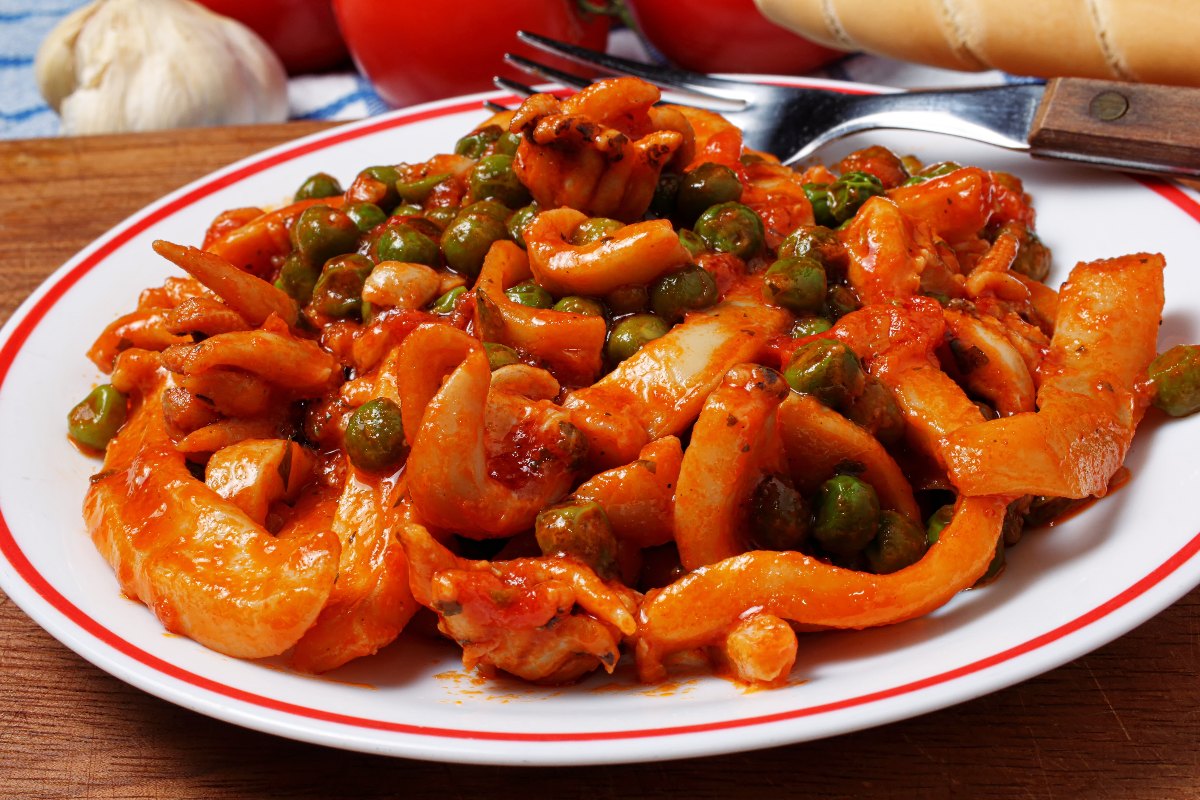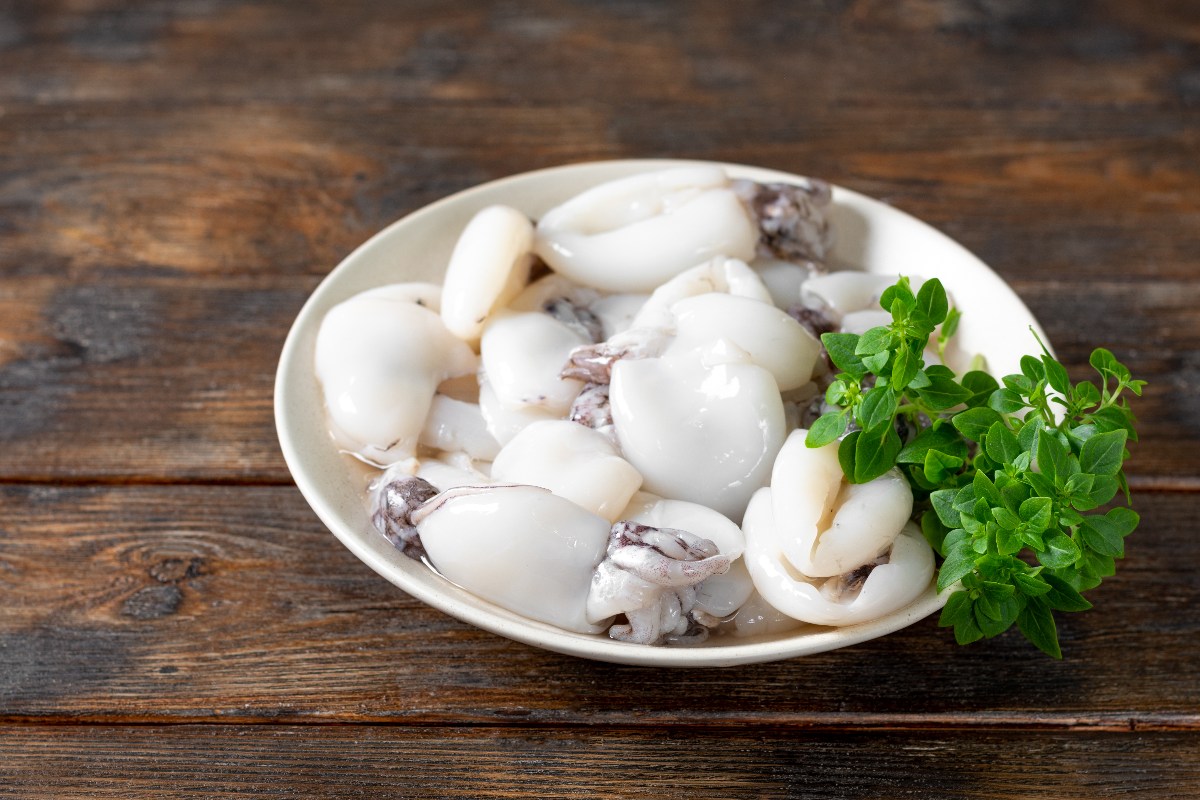Recipes
Ligurian Buridda


Let's find out how to prepare the buridda recipe, a soup based on cuttlefish, peas, dried mushrooms and pine nuts typical of Liguria.
Fish Buridda is a typical soup of Ligurian and Provençal cuisine . Like many of these recipes, it was born from the need to use the leftovers of the catch, making them tasty and tasty. Therefore, although the most modern versions are based on a single type of fish, usually cuttlefish, originally conger eel, dogfish and mullet cut into small pieces were used.
What made everything tasty was not only the long stewed cooking , but also the ingredients used. Pine nuts, capers, mushrooms, parsley and sometimes anchovies make this soup a true delicacy. As often happens with traditional recipes, each family has its own so don't be surprised by additions and/or omissions. Here is our recipe which, as always, is inspired by the original.

Ingredients
For the buridda
- Cuttlefish – 1.5 kg
- Peeled tomatoes – 300 g
- Peas – 200 g
- Onion – 1
- Carrot – 1
- Celery – 1 stalk
- Dried mushrooms – 20 g
- Pine nuts – 50 g
- Anchovies in oil – 2 fillets
- Dry white wine – 1 glass
- Chopped parsley – 1 tbsp
- Extra virgin olive oil – 4 tablespoons
- Fine salt – to taste
- Pepper – to taste
Preparation
How to prepare the fish buridda recipe
First clean the cuttlefish (you can also use a clean and defrosted product). To do this, detach the tentacles, remove the beak and cut them in half. Rinse the bag then cut it into rings or, if they are very large, first divide them in half and then cut them into strips.
Soak the dried mushrooms in warm water and in the meantime finely chop the celery, carrot and onion.
In a pan, brown the sauté mixture together with the anchovies , stirring until they have dissolved. Then add the drained and squeezed mushrooms and the cuttlefish. Brown for a few minutes on a high flame before adding the white wine .
When you no longer smell alcohol, add the crushed peeled tomatoes with a fork. Season with salt and pepper and cook for 45 minutes.
Add the peas , pine nuts , flavor with parsley and continue cooking for another 15 minutes . Serve it hot!
As mentioned, there are several variations of the dish. For example, there are those who add desalted capers to the sauté, to make everything tastier. Similarly, there are those who do not use pine nuts. In all cases we recommend that you accompany the buridda with the sailor's biscuits , just as tradition dictates.
Conservation
The buridda can be kept in the refrigerator for a couple of days, covered in cling film. Heat it in a pan before serving.
Origin and history
Together with cacciucco and brodetto it is among the most famous fish soups in our country. The version with cuttlefish is the most widespread and the inspiration for another great classic: cuttlefish and peas . The Ligurian buridda was the queen of the taverns and has long been the dish par excellence on Holy Thursday .
As mentioned, this dish has ancient origins and was born from the need to use leftovers from the catch. However, it is not clear when it was born nor the origin of the name. The most accredited hypothesis sees it as deriving from the French term bouridde , in turn deriving from an Arabic word with the meaning of "in pieces" , a clear reference to reducing the various types of fish into rather small pieces before cooking them.
In fact, although today the most widespread version is the one with cuttlefish, different fish and sometimes crustaceans were once used. Among the variations, one of the most famous is the one with stockfish which has taken the name of accommodated stockfish . Furthermore, it is customary to also distinguish between Genoese buridda (the one proposed) and Savonese buridda with chard, olives and anchovies.
The most attentive will have noticed that this dish has the same name as a typical Sardinian product. However, Sardinian buridda is a sauce, a condiment, used to season boiled fish such as dogfish and dogfish.
One last curiosity: the term buridda is often used in local jargon to indicate chaos in expressions such as "I make a buridda" and "it's really a buridda".
Riproduzione riservata © - WT











